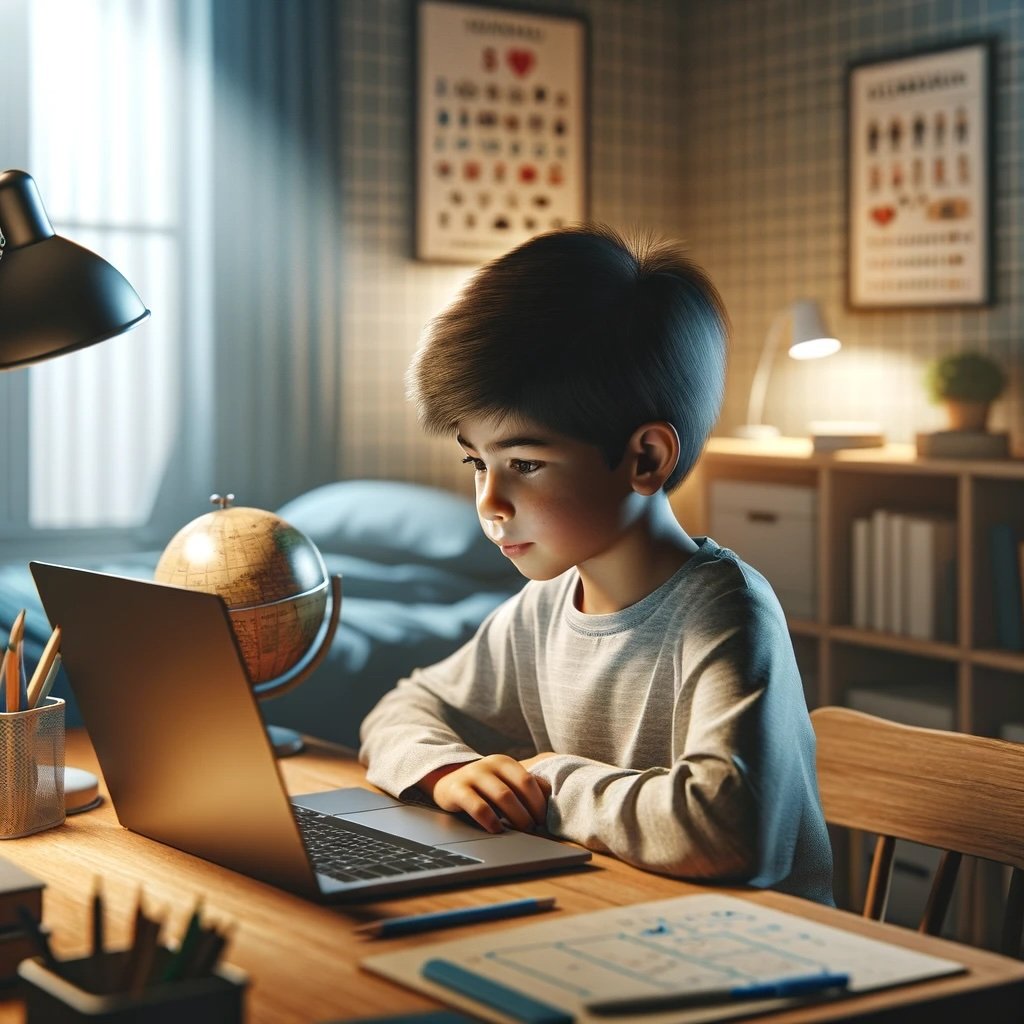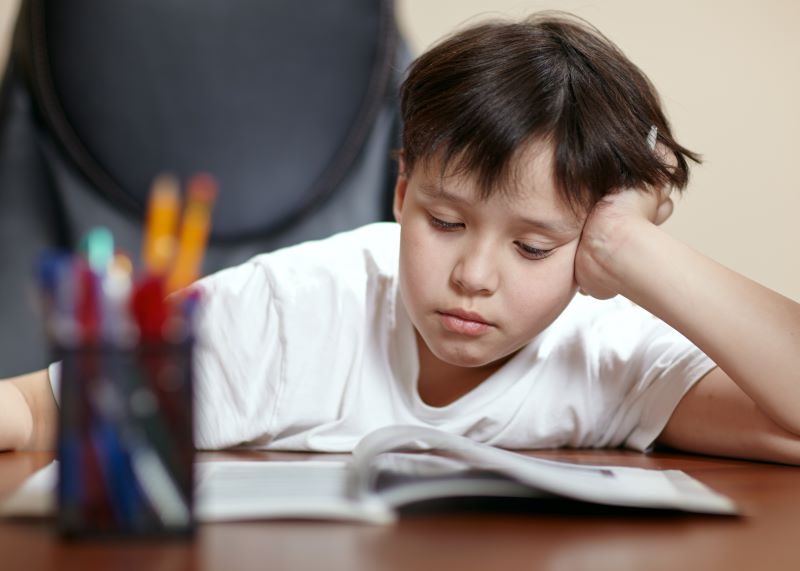
Without a doubt, technology has been advancing its way into schools, homes, and the workplace. Most of us have a strong opinion on if we prefer reading print or on screen because of how we grew up and what works better for us overall. Because technology is advancing rapidly, e-readers, online PDF files, and online textbooks have had a tremendous growth since the release of the first e-reader in 2006 by Sony.
According to research, Pediatrics posted a study in 2015 that studied 350 children in a low-income, minority community, ages six months to four years. The study found that 97% of children were found to have used a mobile device of some kind, 20% of one-year-olds have their own tablet computer, and that 28% of two-year-olds can navigate a cellphone, tablet, or e-reader without any help. They say that the older the children are, the more likely they were to own their own type of technology. (3)
In another study done in the UK in 2015, Researchers found 37% of those aged between three and five have their own tablet. (10)
But the question here is this: Is reading in print better than on screen reading for children? There are myriad amounts of studies that discuss the pros and cons, but overall the answer is yes.
It is more hazardous to read on screen
Do you ever stare at a computer for a long period of time and find yourself feeling light headed, seeing blurry, thus causing a headache? Those symptoms are from Computer Vision Syndrome (CVS,) which is a temporary condition with symptoms including the ones mentioned above, plus fatigue and strained and dry eyes. (6) The same issues you are experiencing when staring at a screen for a long period of time are the same problems that are happening to your children.
Besides CVS, reading a light-emitting e-book before bed interferes with your ability to sleep. Since this interferes with your sleep pattern, your awareness the following morning and overall health is impacted. (4)
“We found the body’s natural circadian rhythms were interrupted by the short-wavelength enriched light, otherwise known as blue light, from these electronic devices,” said Anne-Marie Chang, corresponding author and associate neuroscientist at Brigham and Women’s Division of Sleep and Circadian Disorders. (7)
Better social interactions between parent and child
A study done through Independent consisted of 24 mothers and their seven to nine-year-old children in taking turns reading either mother to child or child to mother. They found that the children’s memory for the descriptions and narratives showed no difference between the print and on screen, but that the interactions of parents and child were found to be different. When either the mother or child read from paper rather than the screen, there was an increase in interactions among them. Reading from paper showed more smiling, laughter, and affection than on screen reading. Children tend to be more engaged with a parent or guardian when using print. (11)
People who read print text grasp more, recall more, and learn more than those who read on screen text
Kretzschmar et al. did a study in 2013 that compared reading efforts on three different medias: a paper page, an e-reader, and a tablet computer. The study consisted of 72 tenth graders in Norway that were divided into two groups: print and computer screen reading. Each group read 1,400-2,000 words. After the groups completed their reading, a comprehension test was given and the students who read on paper scored incredibly higher than those who read on screen.
“It was easier for those who read on paper to remember what they had read,” Mangen et al. said. He said that this is because paper gives spatio-temporal markers while you read. (5)
“Touching paper and turning pages aids the memory, making it easier to remember where you read something. Having to scroll on the computer screen makes remembering more difficult.” (5)
According to a study by Dartmouth researchers, people who used on screen devices like computers for learning did better when it came to understanding existing details, but they had more trouble understanding intellectual concepts. (2)
This basically means that people were able to recall solid, present details, but they could not tell you why it happened, meaning they could not tell what the main concept were and why to a story/ scenario.
Tablets change the focus of learning from the teacher to the technology
Do you find yourself repeating yourself to your children at home when they are too busy giving their full attention to their phone, computer, or tablet screen? In case you did not know, you are not alone. Teachers struggle getting children to pay attention in school because they are too busy playing on their smart phone, computer, or tablet. Because they are distracted, they miss important information that the teacher is explaining and will forget to take notes. According to research done on ProCon, 87% of K-12 teachers believe that "today’s digital technologies are creating an easily distracted generation with short attention spans." They also say that four-fifths of students aged 8 - 18 multitask while using digital media. (8)
Naomi S. Baron did research on university students in the US, Germany, and Japan that revealed if cost were the same that 90% of students would prefer a hard copy rather than an on screen PDF version. This then leads into her take on how digital reading promotes distractions and causes students to multitask. Among American and Japanese subjects, “92 percent reported it was easiest to concentrate when reading in hard copy. (The figure for Germany was 98 percent.) In this country, 26 percent indicated they were likely to multitask while reading in print, compared with 85 percent when reading on-screen.” (1)
This data shows that students are distracted by technology more than print, which takes us back to how tablets and on screen reading shifts the focus from learning from the teacher to technology.
Reading Genie uses print books rather than online text books to teach students and during story time teachers read print books to students rather than reading off an Ipad or computer.
Sources:
- Baron, Naomi S. "How E-Reading Threatens Learning in the Humanities." The Chronicle of
Higher Education. 14 July 2014. Web.
- Devarajan, Dr. Sunjay R. "Reading on a Screen Rather Than Paper May Affect What You
Learn, Study Shows." ABC News. ABC News Network, 12 May 2016. Web.
- Kabali, Hilda K., Matilde M. Irigoyen, Rosemary Nunez-Davis, Jennifer G. Budacki, Sweta
- Mohanty, Kristin P. Leister, and Robert L. Bonner. "Exposure and
Use of Mobile Media Devices by Young Children." Pediatrics. American Academy of Pediatrics, 01 Oct. 2015. Web.
- Mangen, A, Walgermo, B R and Brønnick, K (2013). Reading Linear Texts on Paper
Versus Computer Screen: Effects on Reading Comprehension International
Journal of Educational Research 58: 61–68.
- Myrberg, Caroline, and Ninna Wiberg. "Screen vs. paper: what is the difference for reading
and learning?" Insights. UKSG in association with Ubiquity Press, 07 July 2015. Web.
- New York Daily News, "iStrain: Tablets and iPads Can Cause Eye Problems,"
articles.nydailynews.com, Mar. 14, 2012
- Peter, Elaine St. "E-Readers Foil Good Night's Sleep." Harvard Medical School, 5 Jan. 2015.
Web.
- “Tablets vs. Textbooks - ProCon.org." ProConorg Headlines. Web.
- Urs Gasser and John Palfrey, "Mastering Multitasking," cf.linnbenton.edu, Mar. 2009
- Weale, Sally. "Third of pre-school children have their own iPad, says study." The Guardian.
Guardian News and Media, 06 Oct. 2015. Web.
- Yuill, Nicola. "Is reading on a tablet better for young children, or should they stick to paper
books?" The Independent. Independent Digital News and Media, 16 Dec. 2016. Web.





